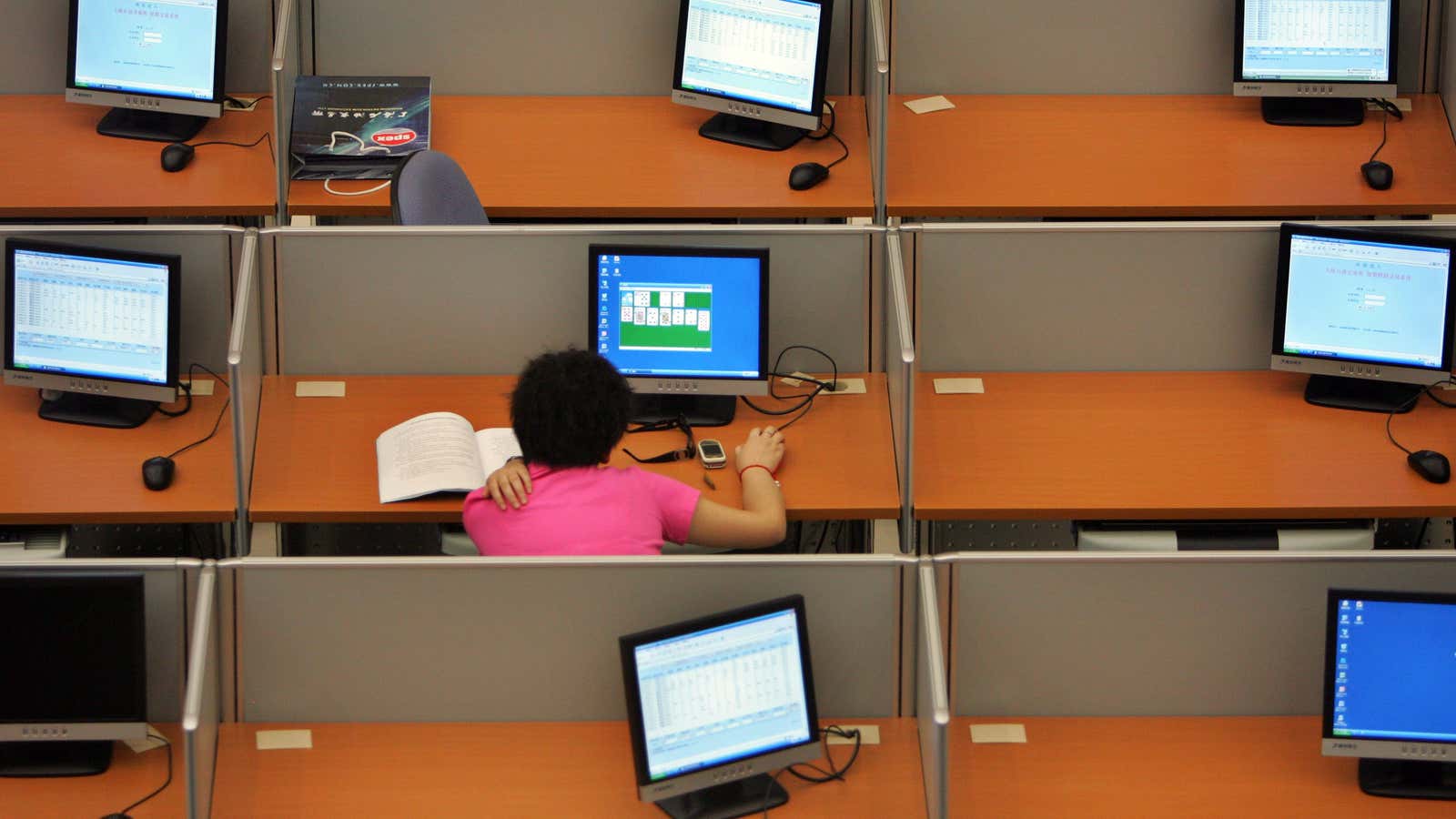There is a productivity-destroying epidemic infiltrating workplaces across the world, and chances are you’re guilty of it. It’s called “cyberloafing”—the act of wasting time on the Internet while on the clock—and much like work itself, it’s bleeding into people’s personal lives.
Whether it’s watching cat videos or live tweeting your feelings, time spent cyberloafing can be difficult to quantify. One study found that employees spend 30% of their workday digitally loafing, while others have measured rates as high as 80%. By some estimates, cyberloafing is costing the American economy $85 billion a year.
Cyberloafing extends to the home as well (if you’ve ever found yourself browsing viral videos instead of exercising, or choosing Snapchat over sleep, consider yourself an offender). According to Matthew W. McCarter, an associate professor at the University of Texas, San Antonio who co-authored a study on how to prevent cyberloafing in the workplace, social cyberloafing can also include moments when people are pretending to pay attention. (Think about every dinner party, seminar, or recital you’ve spent sneaking looks at your phone.)
“Cyberloafing is defined in the work domain, but we [also] observe abuse of internet use at home,” says Brice Corgnet, an assistant professor at the Economic Science Institute and a co-author on the same study. “Children may spend an excessive amount of time online in lieu of completing their homework, and parents may overly use the internet instead of attending to house chores.”
The net impact of cyberloafing is unclear. On one hand, wasted time at work means lower productivity, which translates into a decrease in revenue for employers. McCarter says it can take people up to 20 minutes to refocus on a task after cyberloafing. At home, cyberloafing can interfere with relationships and lead to sleep disturbances.
But researchers have also found some benefits to aimless online browsing, at least in a professional context. One University of Cincinnati study found online breaks at work can refresh workers and boost productivity, and a separate study published in Human Performance found that those breaks improve focus for millennial workers.
What is clear is that we’re spending an increasing amount of time online and being in a cyberloafing funk can make us feel stressed, fatigued, and at risk of depression. Whether you’re loafing on the company dime or keeping it to nights and weekends, it’s important to take steps to counteract those potential risks.
Daria Kuss, a psychologist with the International Gaming Research Unit at Nottingham Trent University, recommends switching off notifications that can disrupt and distract with pop-ups and sound alerts. She also suggests managing email by allocating time at the start and end of each day for it, instead of letting your inbox constantly disrupt your flow, which can be a form of cyberloafing, even if it feels like working.
“[People feel] pressure to be present all the time and to respond immediately,” says Kuss. “If you are not engaged in social communication on the internet, you feel like you’re missing out on something, which leads many people to almost obsessively need the internet for social purposes, like communicating with their friends.”
If self-regulating seems unlikely, Corgnet recommends asking someone in your life to help out, or utilizing peer-monitoring software platforms. Apps and extensions like Moment, Checky, or RescueTime monitor how long you spend on the internet and can even alert you when you spend too much time on a certain activity.
But the easiest fix is simply logging off, even if it’s just for a short while.
“Building offline time into our schedules can help us discover new pleasures, activities, and ways of relating,” says Stanford psychiatrist Elias Aboujaoude, author of Virtually You: The Dangerous Powers of the e-Personality. “Remember that this is not about logging off completely; this is not feasible or even advisable. It is about seeking balance.”
